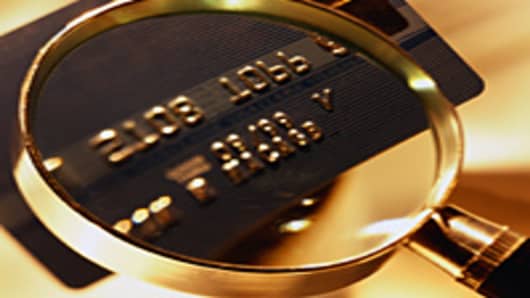MasterCard and Visawarned banks Friday of a security breach that may have occurred earlier this year.
As many as 10 million cardholders could get phone calls from their issuers notifying them of suspicious activity posted to their accounts.
Most customers will be happy not to have to pay for stuff they didn’t buy.
But few of them will know exactly what was involved in averting a potential disaster.
Here's what happens:
Credit card companies detect fraud by flagging several different kinds of transactions. Among them are large purchases made just after small ones, online purchases and purchases that don’t fit a cardholder’s profile.
They have incentive to do this: Credit card companies "lose approximately seven cents per every hundred dollars of transactions due to fraud,” said Andrew Schrage, co-owner of the Money Crashers Personal Finance website. “For 2010, this translated into roughly $8.6 billion.”
If the credit card company "notices a relatively small purchase — for example, gas, followed by a large one say, for a flat-screen TV — this is likely to tip them off,” he said. “This is standard behavior for a criminal with a stolen card. They make one small purchase to see if the card is still active, and then make a major purchase.”
The anonymity of the Internet makes it an ideal venue for credit card thieves, he added.
“A large number of online purchases in a short period of time is also likely to get a credit card account flagged,” he said. Multiple purchases in rapid succession will also set off the credit card companies’ alarm bells, whether they’re made online or at a store.
Credit card companies also monitor cardholder transaction habits to establish individual customer profiles. These help issuers determine which purchases are standard operating procedure for the cardholder, and which ones deserve closer scrutiny.
According to Steve Weisman, author of “The Truth About Avoiding Scams,” issuers become suspicious whenever a transaction occurs that falls outside of the parameters of a customer’s profile. So if a cardholder usually only uses a credit card buys groceries and pay the dry cleaning bill but suddenly incurs a charge for five Louis Vuitton handbags, it’s almost certainly a red flag.
Similarly, people who do most of their spending in the U.S. should notify card issuers before traveling overseas, as any charges they incur in a foreign country could be flagged.
The ex post facto nature of credit-card fraud detection may not offer much comfort to uneasy cardholders. However, they should be aware issuers spare no effort to crack down on these crimes, and not just because it’s good for their customers.
So the next time the credit card company calls to let you know they’ve detected suspicious activity on your account, remember they have as much of a vested interest in stopping it as you do.



